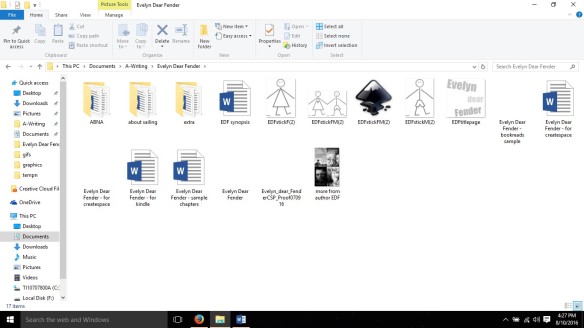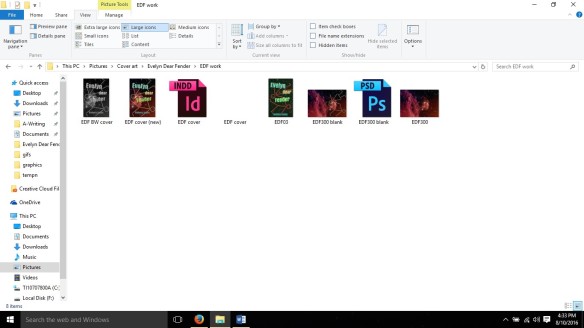(Prologue, from the novel, The Father)
When Jack and Oliver were young, and each was struggling to understand the sudden absence of their mother, the father found himself, for the first time ever, uncertain. Oliver was not yet two. He could speak, if only enough to convey his wishes, and appeared to understand simple directions and certain basic concepts—yes, no, up, down, in, out, here, gone—but did not seem to grasp the fact that his mother no longer existed. Jack, exactly one year older, was quick to learn he was not to ask about her; he’d had it explained to him, from this angle and that, in a language so simple he could not have misunderstood. He stopped asking, but continued behaving as though he expected her to reappear, as if his mother had just stepped out for a few minutes—gone to the store, the post office, or somewhere.
Down the hall from the boys’ bedrooms, the father leaned over the edge of his prized, mahogany desk, editing a fifth-grade, social studies textbook. The annoying mutters and squawks of a childish disagreement flitted in and out of his awareness like two drunken fruit flies. He cocked his head, squinted, tried, but could not make out the gist of the argument, and was tempted to ignore it. But then Oliver appeared in the doorway mumbling and sniffling, his lower lip, which was usually tucked up under its thin upper mate, was now protruding beyond it, quivering along with his dimpled chin. He took a step back as his father’s glossy dark eyes lifted from his work and locked onto his.
The father pressed a hand to his forehead. “Why is this so…?” His chest and shoulders collapsed with a huff. Could it be, he wondered, there’s something wrong with the boys? Were they somehow infected by their mother? He closed his eyes and, as a low, nearly inaudible moan left his throat, shook his head. He had work to do, another deadline to meet. His two boys, however, were eating up nearly all his time. Oliver was excessively whiny. Jack seemed always distracted, always messing with things he shouldn’t—dangerously curious. And why, after laying it out so thoroughly and clearly, are they not getting it?
Nearing wit’s end, the father strapped the boys into their car seats and headed for the local library in search of answers. He led them to the library’s nursery, found an appropriate book for each, and then assured them they would not be there long.
“Jack, listen to me. You are not to leave this room.” He threw a glance toward the young attendant whose job was keeping watch over the children in the room. “And do not let Oliver out of your sight. When I am done here, we’ll go to McDonald’s for a Happy Meal, all right?”
Jack gripped Oliver’s hand a little tighter. He looked up at his father and nodded.
The father searched among a section of books on child psychology until he found a title that hinted at relevance: Kids and Loss by Dr. David L. Spock. He slid the book off the shelf, opened it to a random page, and read, “Openness is perhaps the single most important tool for regaining and maintaining a child’s trust in the event of—” Tools? he thought. They’re kids, not cars! He slammed the book shut and selected another, reading first what he could find about the author, skipping past several chapters, scanning a few paragraphs, concluding it was mostly worthless conjecture, then shoving it back onto the shelf—and on to the next. Rubbish, he thought, just a bunch of educated shysters with thesauruses. This is why we have lying politicians, crowded prisons, and homosexuals running amuck. He slid another book from the shelf, opened it to a page toward the middle, and read, “If you were to choose one word, a word that best sums up who you are, what would that word be?”
One word? The father rolled his eyes. Who writes this crap?
He stepped from the door of the library, carrying Oliver with one hand, holding Jack’s with the other, no books, thinking, one word, one word… Noble. And then, a little later, while standing in line at McDonald’s: One word… Loving. Loving? Compassionate. Yes, but… one word…
Paradoxically, during his first year of high school, Jack, when asked about his father, would sum him up this way: self-righteous, over-protective, manipulative, inflexible, and jealous. But that wasn’t all, there was something about his father he was never quite able to define. Perhaps because he was afraid to. But then this is the skewed opinion of a teenage boy. If one wanted an objective opinion—say, from an outside perspective… from Jack’s uncle, Lu?
“One word?” His uncle would likely have said, “Mysterious.”
It could certainly be said that the father, a handsome man of average height and build, was secretive—and one might add, aloof. Perhaps the most curious among his secrets was his name. “Father” is how the boys knew him. They’d nearly reached adolescence before discovering their father had a name that predated their existence. Of their mother, they knew even less. Jack and Oliver forgot about her, and eventually lost access to any and all memory of her. They of course knew they at one time had a mother. They didn’t talk about her, however, as their father clearly disapproved of the topic. They had no way of knowing if she was alive or dead, had not once seen a photo of her, and were never permitted her name. If either of the boys had a memory of their mother, it would have been Jack, being the older sibling, but he had none. The closest he could get was a memory from when he was four, and his mother wasn’t actually in it. It involved an incident which took place in the spring following the boys’ third and fourth birthday (coincidentally, both were born on the twenty-fifth of December, a year apart.) Jack remembered his father taking him and his little brother to the zoo, and he, walking alongside his father, his hand in his—Oliver, perched upon their father’s shoulders, grasping two tight fistfuls of dark brown hair.
“Look boys, over there in the shade.” Their father had pointed into a large open habitat. “What is that?”
“A horse,” Jack had responded.
“No, no, not a horse. Do you know, Oliver?”
“A pony.”
Jack would later recall the incident and remember his father laughing, but the picture in his mind seemed somehow unnatural, perhaps contrived, like one of the TV shows they would watch just before bed. His father did not laugh. “It’s a baby giraffe,” he had stated matter-of-factly. “See, it has a very long neck. That’s its mother standing over there.”
Jack said, “That’s its mother?” He surveyed the other spectators: kids being pushed in rented strollers, some, holding the hands of their parents, and others, curiously wandering about as though they belonged to no one. There were fathers, but mostly mothers—lots of mothers, which made him wonder. The question was there on the tip of his tongue, but he didn’t ask. He already knew the answer. Well, not the answer, but an answer. Just behind a thin veil of uncertainty was an older memory, the reason he did not ask. In time, the veil and all that was hidden by it faded, leaving him with only a vague idea of something unpleasant. Over the years, that unpleasantness became a normal state of being like a low-level pain, which he grew used to—always there, but hardly noticeable.
No matter how hard he tried, Jack could not produce a memory of his mother. And though it wasn’t so much a fond memory, nor was it particularly unpleasant, the day at the zoo had, for whatever reason, stuck with him—it seemed to have always been there. If one were to ask him to share a fond memory, he would vacillate, searching his mind for something that might qualify. It would likely be more recent, from his teens—a make-do memory, perhaps a wee bit modified—and would probably include a certain girl. On the other hand, if one were to ask Oliver to share a memory, his fondest memory ever, he would not hesitate in replying, “The mountain of leaves.” He couldn’t say with any certainty when it was—perhaps the autumn of that same year, his third, or possibly the next—but it was the memory which most endeared his father to him.
The way Oliver told it, the father had raked up a huge pile of leaves in the back yard. He remembered it being a sunny day, though it actually wasn’t; there was a soft gray blanket of clouds stretching from one end of the sky to the other. It was flannel-shirt cool—not yet hat and glove weather. He remembered being lifted by his father, tossed high into the air, then landing with a splash of leaves flying up around him—as gentle as a mountain of down filled pillows—laughing, loving it—a smile in his father’s eyes—Jack’s turn, then his again.
Was it really that way? It’s how he remembered it.
Curiously, Jack could not recall the mountain of leaves. He could get close, however. He remembered an incident from earlier in the summer of that same year; though it would not rank among his favorites. It, like the zoo memory, was one of the few memories from his childhood that remained accessible.
As he recalled, the day was sunny—and it was. He and Oliver were in the backyard playing on the swing set their father had erected for them just a few weeks before. Jack was pumping himself higher and higher, intent on breaking a world record. Has anyone ever jumped from as high as this before? He turned to his brother as he worked himself higher yet.
“How high can you jump?”
“A hundred feet,” Oliver replied.
“No you can’t.”
“Uh huh.”
“Bet you a hundred dollars you can’t jump this high.” Jack stopped pumping, and readied himself for the right moment. He leapt from the seat of his swing, gracefully sailing through the air, his back arched; then, landing on his feet, he collapsed to his knees. He stood, brushed the grass and dirt from his knees, and looked up. His brother was still pumping. “I wouldn’t do that if I was you.” With an impending sense of liability, Jack watched as his little brother left the seat of his swing—his arms flaying about, like a baby robin on its first flight, then down he came, his bare heels hitting the ground, toes pointing up—thump—butt and back to the ground. A dream-like quiet enveloped the moment.
“Are you all right?” Jack said.
Two seconds later, Oliver was grimacing and moaning.
“You all right, Oliver?”
Jack’s little brother squeezed his bright, hazel eyes shut and groaned.
“Oh, you’re bleeding.”
Oliver’s eyelids flew open. He brought his fingers to his lips, pulled them away, and gazed at them as though searching for the logic behind that brilliant-red, silky liquid being where it shouldn’t. He scrambled to his feet and tore off for the backdoor of the house, working himself up from a whimper to a wail along the way.
Stunned, Jack stood there watching while searching for a connection between the facts and his possible guilt. But then, realizing his hesitation could be misperceived as a confession, he tore off after his brother.
“Wait! Wait! Wait, Oliver!” But it was too late.
“How did this happen?” His father had Oliver by the wrist, dragging him toward the bathroom.
“We were just jumping from the swings,” his youngest cried.
“Jack! Get in here! Now!”
As Jack scrambled into the bathroom, his father was dabbing at Oliver’s mouth with a white, wet, blood-dappled wash cloth. “You think I have time for this? You think I just sit around all day waiting for a chance to administer first-aid to my children?” He turned to Jack. “This reeks of competition. Did you challenge your brother?”
Uncertain of his father’s meaning, and too terrified to ask, Jack searched for a way around the question. At the moment, it seemed that denial was the safest stance to take. “No, Father.”
His father stopped what he was doing and glared at him. He then turned back to Jack’s younger brother. “Oliver, were you and Jack having a contest?”
“No, Father, he just bet me I couldn’t jump as high as him, is all.”
The father unbuckled his belt and, with a few impatient jerks, freed it from the loops surrounding his waist. “You little liar.” He folded the belt, gripping the two ends with one hand and Jack’s skinny little arm with the other. Slap! “You know better”—slap!—“than to lie to me”—slap!—“ever! You don’t lie to anyone”—slap!—“especially me! You understand that?”
That night, after the father had tucked Oliver into bed, he came and sat at the edge of Jack’s bed, brushed a tuft of walnut-brown hair away from the boy’s deep-set eyes, bent down, kissed him on the forehead, and said, “You know I punish you because I care about you. I want you to be a good boy. Have I ever punished you for being good?”
Jack shook his head.
“No. You have to learn to be a good boy so you can grow up and be a good man. Otherwise you’ll end up having to go live with your Uncle Lu. It’d be too late for you to be good then. Uncle Lu would punish you regardless of whether you’re good or bad.” He gave his boy a gentle pat and a smile—“You don’t want Uncle Lu to get you”—then reached down and pulled the blankets up to his chin. “Sleep tight now, son.”
Hours later, a noise crept into his sleep and woke him. Jack lifted his head from his pillow. He stared into the dark corners of his room and listened, but there was nothing to hear. He lay back down, pulled his blankets up over his shoulder and squeezed his eyes shut.



















